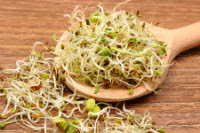In this blood sugar diet blog, we have three strong evidence based recommendations for controlling your blood sugar. These steps are essential for any blood sugar diet plan and part of any Naturopathic Doctor’s treatment plan. We will take talk about what foods to avoid with diabetes and foods that can help lower blood sugar. These tips are helpful if you are pre-diabetic to avoid becoming diabetic. Once you become diabetic, you must become very aware of your blood sugar. Adjusting to a healthy diabetic diet will protect your from having consequences from diabetes such as heart disease, kidney dysfunction, vision loss, stroke, amputations and so many more. It will take time for the damage to lead to these and it is sad to watch a family member or friend deal with the effects of diabetes when they are not willing to take an integrative or holistic and nutritional approach to their diabetes.
One ~ Eliminate Sugar
- Don’t eat foods or beverages containing sugar. Avoid both artificial and natural sugars.
- Read labels: Corn syrup, corn sweetener, sugar dextrose, glucose, fructose, brown sugar, cane sugar, beet sugar, turbinado sugar, date sugar, raisin syrup, maple syrup are all sugar and should be avoided in even the smallest amounts.
- Avoid the use of artificial sweeteners as a substitution for sugar. Research has shown that artificial sweeteners can cause aggravated hypoglycemia (low blood sugar), loss of diabetes control and precipitation of clinical diabetes in persons who were free from disease. In diabetics, it has caused an aggravation of complications related to diabetes.
- Naturally sweet foods must also be avoided. These include honey, fruit juice, grapes, raisins, dried fruits, fresh fruits, jams and jellies.
- Avoid all the following: ice cream, cake, candy, soda (all carbonated beverages), pies, pastries, canned jellies, preserves, jell-o, most cold breakfast cereals, fruit juice, punch, breakfast syrups, and most processed food items.
What fruits can diabetics eat?
There is an allowable exception of one 4-oz. selection daily from the list below. Make sure the fruits are fresh and organic whenever possible. Research is also showing that a pint of berries are does not raise blood sugar levels dramatically in most diabetics and is protective of small vessels.
- Apple
- Papaya
- Orange
- Home canned fruit with
no added sweetener
- Melon
- Blueberries
- Pineapple
- Banana
- Grapefruit
- Pear
Sometimes a food intolerance panel can also be helpful to identify the foods that cause the blood sugar to rise.
Two~Eat Protein Rich and/or complex carbohydrate rich foods
Eat complex carbohydrates and protein rich foods in small to moderate amounts (in 1 to 4 ounce servings) at most meals or snacks. This does not mean you should avoid other types of healthy foods that you enjoy, such as vegetables. Protein is a very important part of allowing your blood sugar to be carried stable throughout the day.
Three ~ Eat small, frequent meals
Eat small to moderate amounts of food every few hours, particularly if your energy is low. For example, eat 3 moderate meals daily. You can have one, two or three between meal snacks as desired, or as needed to keep your energy and concentration up.
These are some basic suggestions but everyone is an individual so we encourage you to follow up with your naturopathic doctor or integrative doctor if they provide holistic medicine. We specialize in this kind of thing so neither diet or diabetes are not a new idea for us. Getting the right care tailored for you or your child’s specific body and situation is key to success in your health. At Journey of Health Naturopathic Clinic we are dedicated to finding the right integrative solutions for each patient. We proudly serve the San Diego area, providing some of the best service in Naturopathic medicine. If you wish to further your own journey of health with Naturopathic solutions and Alternative medicine, give us a call at (619) 772-1164. We offer free 10 minute consults so you can see if we are the right fit for you and you family. Reach out and learn more about your holistic medicine options today!




